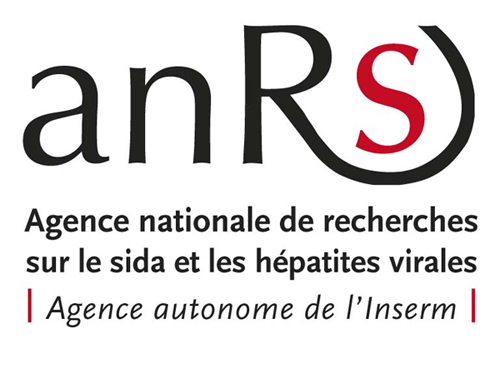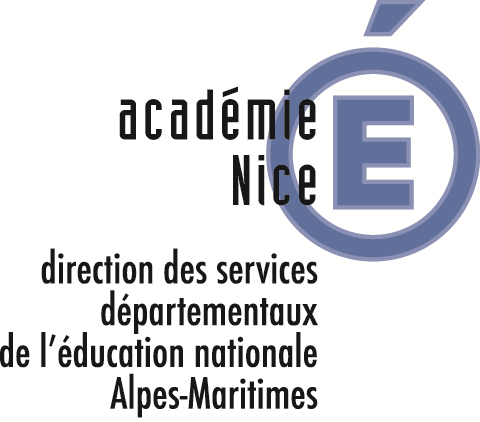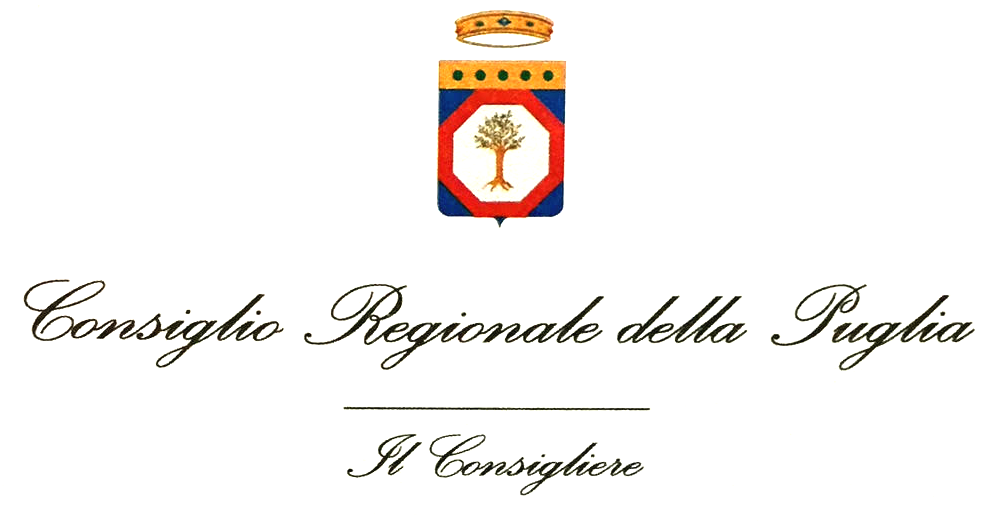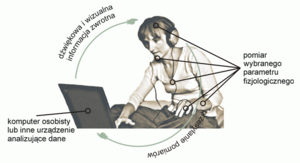FRANCE TAKES NEW INITIATIVES IN THE FIGHT AGAINST AIDS
Coupe de France Histori’kart Angerville (91) 18 etCoupe de France Histori’kart Sens Circuit de Soucy
ESCUELAS FRANCESAS FECHA PLAN DE AUTOPROTECCIÓN ESCOLAR
FOR IMMEDIATE RELEASE CONTACT FRANCES SQUIRE SEPT
OSPEDALE REGINA APOSTOLORUM – VIA S FRANCESCO 50
1 FONDS SOCIAL EUROPÉEN EN FRANCE DOSSIER DE CANDIDATURE
France takes new initiatives in the fight against AIDS
France takes new initiatives in the fight against AIDS
Although undeniable progress has been made against HIV, the means to curb the epidemic are still lacking. France is a driving force both in research and in the funding of programmes for access to treatment and screening in the countries of the Global South and is diversifying its operations with original initiatives.

Almost every day brings new discoveries in the fight being waged by scientists against the AIDS virus. France is making a great contribution to this, notably through the French National Agency for Research on AIDS and Viral Hepatitis (ANRS), which coordinates and funds research in France and in developing countries, as part of a North-South partnership. The ANRS is itself the promoter in the South of campaigns aimed at demonstrating the effectiveness of public health strategies to local people there.
In terms of prevention, it has a highly innovative vaccine research programme that has resulted in some fifteen preventive vaccine trials on healthy volunteers. This programme is today run by the Vaccine Research Institute (VRI). The Agency has also been involved for several years in research aimed at evaluating the use of antiretrovirals in pre-exposure prophylaxis among populations with a very high risk of infection.
With the Aides association, it has demonstrated that rapid screening tests can be administered effectively in France by non-physicians, enabling legislation to be changed. Moreover, in the countries of the Global South, one of its trials has shown the benefits of male circumcision in reducing the risk of transmission of the infection. This work has been confirmed by American teams and has resulted in the drawing up of practical recommendations by the World Health Organisation (WHO). The ANRS is responsible, along with the US National Institutes of Health (NIH), for the ANRS 1295 Camelia trial, aimed at improving the care of patients jointly infected by HIV and tuberculosis.
At the request of the government of Cameroon, the ANRS has conducted a major assessment operation of the national programme for access to healthcare. It is starting, with South-African researchers, an evaluation of the large-scale benefit of providing infected persons with rapid treatment.
Currently promoting 67 clinical studies in France, it funds projects instigated by teams from the French National Institute of Health and Medical Research (INSERM), the Institut Pasteur, the National Centre for Scientific Research (CNRS), the French Research Institute for Development (IRD), hospitals and universities. This investment has put France in the top three countries in terms of scientific work on HIV.
The recent International AIDS Conference in Washington confirmed that although treatments are increasing in number, variety and effectiveness, further funding is still vital in order to deploy them on a large scale. With this in view, the announcement of the President of the Republic that a portion of the financial transaction tax will be allocated to the fight against AIDS received unanimous support and should encourage other States to go down the same road.
In a similar bid to reduce the inequalities between the countries of North and South, France, the leading European contributor and second in the world to the Global Fund to Fight Aids, Tuberculosis and Malaria - with 360 million Euros per year - has set up an innovative procedure for contributing to the Fund, known as the 5 % Initiative for AIDS, Tuberculosis and Malaria. This is supervised by the Ministry of Foreign Affairs and carried out by France Expertise Internationale. 5 % of France’s contribution to the Global Fund, i.e. almost €18 million per year, will be set aside to respond to demands from Francophone countries for high-level technical expertise to help them in the design, implementation, follow-up, evaluation and impact assessment of the Global Fund’s programmes. The principal beneficiaries of the measure will be the priority countries for French development aid (Benin, Burkina Faso, Comoros, Ghana, French Guinea, Madagascar, Mali, Mauritania, Niger, the Democratic Republic of the Congo, the Central African Republic, Senegal, Chad, Togo, as well as Afghanistan, Haiti and the Palestinian Territories).
These initiatives are added to another original funding source, the airline-ticket tax. This is applied in 9 countries and funds more than two thirds of the budget of the international drug purchase facility UNITAID, to which France is the main contributor. Out of this emerged the Estheraid project, a partnership between UNITAID and the French Public Interest Group ESTHER, aimed at improving access to antiretrovirals in five African countries.
The joint efforts of the State and its operators,
the universities with strong involvement, research bodies
historically very engaged, to which we must add the famous Sidaction
- the aim of which is to develop research programmes and care for the
sick - and associations such as AIDES or Solthis, provide a
consistent image of strong interactions between medical, research and
non-profit organisational circles.
(Source :
MAE/Sylvie Thomas/August 2012)
1 MTMMI 673478 CHIUSA FRANCESCA GIOVEDI 1530 MTMMI 673549
11 POURQUOI EN FRANCE LA PRODUCTION EOLIENNE N’EST
161021 EXPERIMENTAL LOCALISM AND EXTERNAL VALIDITY FRANCESCO GUALA† UNIVERSITY
Tags: against aids, fight against, initiatives, fight, against, france, takes
- BILL ANALYSIS HB 874 BY CALLEGARI STATE AFFAIRS COMMITTEE
- CONTRATO DE AGENCIA ARTÍCULO 1 POR UNA PARTE SE
- CURRICULUM VITAE DATI PERSONALI COGNOME E NOME RITTER
- P ROMOTING BEST PRACTICE FOR INSHORE FISHERIES A CONSULTATION
- STRATEGIJA INKLUZIVNOG OBRAZOVANJA U CRNOJ GORI PODGORICA 2008 SADRŽAJ
- WYKONAWCA ZAŁĄCZNIK NR 1 DO SIWZ ……………………………………………………………… (PEŁNA NAZWAFIRMA
- EJERCICIOS SELECTIVIDAD ZARAGOZA TERMOQUÍMICA JUNIO 2001 OPCIÓN 1
- ANEJO 18 ENMIENDAS Y ABONADO ANEJO 18 ENMIENDAS Y
- PSIRU – UNIVERSITY OF GREENWICH PSIRUPSIRUORG 27102021 PRIVATISATION MULTINATIONALS
- Kentucky Motor Vehicle Commission Application for Motor Vehicle
- TRADITIONAL MARRIAGE CEREMONY GOOD MORNINGAFTERNOON EVERYBODY AND WELCOME TO
- 82511 VOLLZUGSVERORDNUNG ZUM EINFÜHRUNGSGESETZ ZUM BUNDESGESETZ ÜBER DAS BÄUERLICHE
- ACUERDO DE LA COMISIÓN NOMBRADA POR EL PLENO DEL
- FUNCTION AND SCOPE SPECIFIC DETAILED INFORMATION REGARDING THE FUNCTION
- UCHWAŁA NR VI442019 RADY GMINY TARNÓWKA Z DNIA 29
- PO RAZ PIERWSZY OD WIELU LAT W NASZEJ SZKOLE
- EXAMEN DE CINTURÓN NEGRO HASTA 5º DAN Y 3ER
- UMOWA NR ……2017 SPRZEDAŻY CIEPŁA ORAZ JEGO DOSTARCZANIA W
- BOTSWANA IS A LANDLOCKED COUNTRY DOMINATED IN GEOGRAPHICAL TERMS
- U S DEPARTMENT OF HOUSING AND URBAN DEVELOPMENT OFFICE
- PREGLED UKREPOV ZA SPODBUJANJE AKTIVNEGA STARANJA SPODBUJANJE AKTIVNEGA STARANJA
- Características de Elementos Ornamentales y Funcionales del Enlace V21ronda
- REPUBLIKA HRVATSKA – REPUBBLICA DI CROAZIA ISTARSKA ŽUPANIJA
- SUPPLEMENTARY DATA SIMPLIFYING GENE TREES FOR EASIER COMPREHENSION PAULLUDWIG
- CALL FOR CASE STUDIES ON INFORMATION AND COMMUNICATION TECHNOLOGY
- JUMPING AND LANDING SEQUENCE (LEADING UP TO PLYOMETRICS IN
- 165 ÉLOGE DU PROFESSEUR FRANCIS LESCURE ÉLOGE DU PROFESSEUR
- DISCURSO DEL EMBAJADOR LYU FAN ANTE LA ASOCIACIÓN DE
- PODRĘCZNIKI POLECANE JAKO MATERIAŁY DO PRZYGOTOWANIA SIĘ DO ĆWICZEŃ
- ANDRÉS ALFARO HOFMANN VALENCIA 1957 REALIZA ESTUDIOS DE ARQUITECTURA
 EL SOLDADITO DE PLOMO HABÍA UNA VEZ UN
EL SOLDADITO DE PLOMO HABÍA UNA VEZ UN CHANGE OF REGISTERED OFFICE PARTICULARS – FORM A4 ASSOCIATIONS
CHANGE OF REGISTERED OFFICE PARTICULARS – FORM A4 ASSOCIATIONS ATTACHMENT 2 SUMMARY INFORMATION OF THE DIRECTORS OF TATA
ATTACHMENT 2 SUMMARY INFORMATION OF THE DIRECTORS OF TATANZQA UNIT STANDARD 18337 VERSION 5 PAGE 2 OF
 RISK MANAGEMENT GUIDELINES STAKEHOLDER RISK ATTITUDES (V 10) THE
RISK MANAGEMENT GUIDELINES STAKEHOLDER RISK ATTITUDES (V 10) THEAPR GICC2BIODIVERSITÉ CC ET STRATÉGIES DÉMOGRAPHIQUES DES POPULATIONS PISCICOLES
DESCRIPCIÓN DE LAS MODIFICACIONES INTRODUCIDAS DURANTE LA OBRA ÀREA
 MINISTÈRE DE LA SANTÉ ET DES SPORTS DIRECTION RÉGIONALE
MINISTÈRE DE LA SANTÉ ET DES SPORTS DIRECTION RÉGIONALE D SDEN ANNEXE 01 DEAE 2 CANDIDATURE FICHE ENSEIGNANT
D SDEN ANNEXE 01 DEAE 2 CANDIDATURE FICHE ENSEIGNANT BİLKENT ÜNİVERSİTESİ İNGİLİZ DİLİ MESLEK YÜKSEKOKULU İNGİLİZCE SEVİYE TESPİT
BİLKENT ÜNİVERSİTESİ İNGİLİZ DİLİ MESLEK YÜKSEKOKULU İNGİLİZCE SEVİYE TESPİT S ZENT ANDRÁS KATOLIKUS ÁLTALÁNOS SZERVEZETI ÉS MŰKÖDÉSI ISKOLA
S ZENT ANDRÁS KATOLIKUS ÁLTALÁNOS SZERVEZETI ÉS MŰKÖDÉSI ISKOLA BARI 20042016 AL SIGNOR PRESIDENTE DEL CONSIGLIO REGIONALE S
BARI 20042016 AL SIGNOR PRESIDENTE DEL CONSIGLIO REGIONALE SNEIGHBOURHOOD CONTACTS KEY LOCAL CONTACTS NAME OF NEIGHBOURHOOD QUEENS
 CRITERIOS DIAGNÓSTICOS DE LA ADA 2013 CRITERIOS DIAGNÓSTICOS DE
CRITERIOS DIAGNÓSTICOS DE LA ADA 2013 CRITERIOS DIAGNÓSTICOS DE SAISON 20172018 CETTE ANNÉE L’AS DU LYCÉE VOUS PROPOSE
SAISON 20172018 CETTE ANNÉE L’AS DU LYCÉE VOUS PROPOSERICHTER KLAUS O WETLAND MITIGATION FOR AMPHIBIANS PAGE 5
 DRODZY RODZICE NAUCZYCIELE WYCHOWAWCY UPRZEJMIE INFORMUJEMY ŻE DZIĘKI WSPARCIU
DRODZY RODZICE NAUCZYCIELE WYCHOWAWCY UPRZEJMIE INFORMUJEMY ŻE DZIĘKI WSPARCIUPLAN OF ACTION TO STRENGTHEN DEMOCRACY CREATE PROSPERITY AND
POVERTYENVIRONMENT INTERACTIONS IN AGRICULTURE KEY FACTORS AND POLICY IMPLICATIONS
ABSTRAK NAMA JAYA SUGANDA PROGRAM STUDI KEPERAWATAN